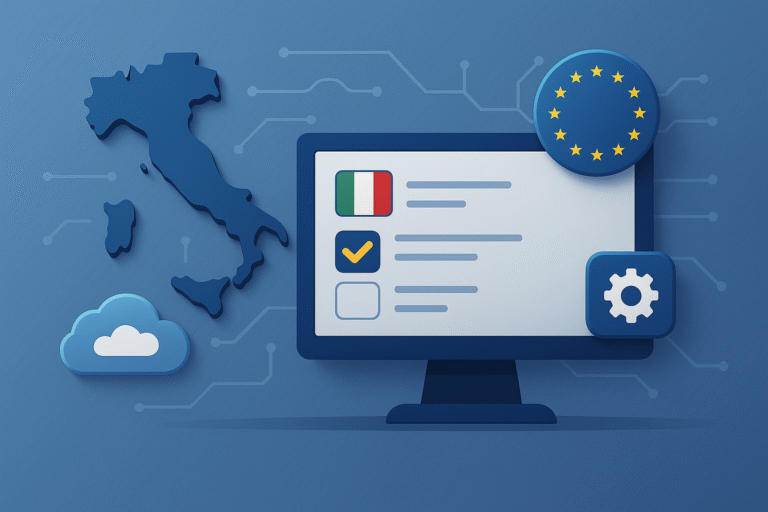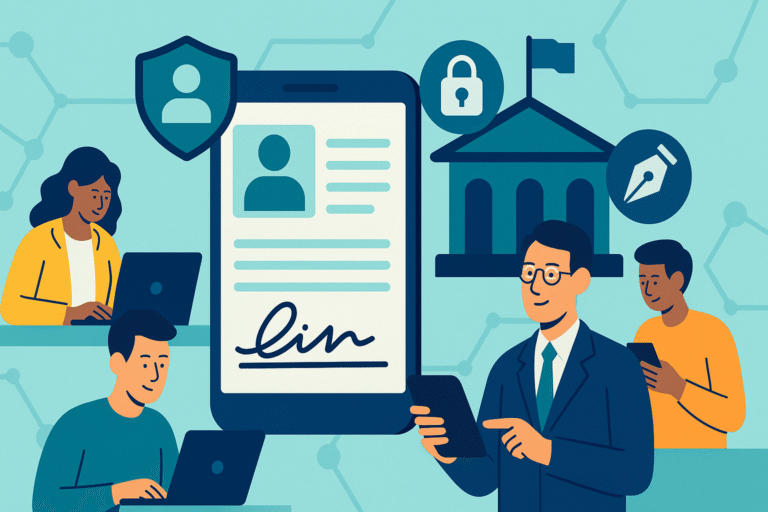
The Best Participatory Democracy Platforms Worldwide
Introduction
Digital democracy is expanding thanks to open-source platforms and civic tech tools designed to make citizen participation more accessible. These platforms enable online consultations, open discussion spaces, participatory budgeting, and even large-scale deliberation processes involving thousands of participants.
👉 For an introduction, see our Beginner’s guide to using online participatory platforms and the case study How Barcelona built a model of digital democracy.
1) Decidim (Barcelona, open source)
Features
Modular platform used in over 30 countries. It supports participatory processes, participatory budgeting, public consultations, and citizen forums.
E-democracy functionalities
- Multi-phase participatory processes with timelines and responsibilities.
- Transparent online voting.
- Monitoring modules for policy implementation.
How to get started
Available for free at Decidim.org. Requires installation and configuration on a public server or managed hosting provider.
2) Citizen OS (Estonia)
Features
An international platform focused on online consultations and secure voting. Widely used by governments, NGOs, and civic groups.
E-democracy functionalities
- Proposal creation and debate modules with attached documents.
- Secure voting with verification systems and audit trails.
- Consensus-building tools and reporting features.
How to get started
Offered as SaaS with a free plan for small groups. Registration available at citizenos.com.
3) Consul Democracy (Madrid)
Features
Adopted in hundreds of cities worldwide, Consul is one of the most widely used platforms for participatory democracy.
E-democracy functionalities
- Citizen proposals with digital signature collection.
- Thematic debates with moderation tools.
- Online voting and local referenda.
How to get started
Open source, downloadable at consuldemocracy.org. Supported by an international community of developers and institutions.
4) Loomio (New Zealand)
Features
A cooperative platform designed for groups, cooperatives, and associations.
E-democracy functionalities
- Structured discussions and transparent threads.
- Voting, polling, and consensus gathering tools.
- Collaborative deliberation with approval/objection options.
How to get started
Available both as an online SaaS (paid plans) and as open-source software. More info at loomio.org.
5) Pol.is (Taiwan)
Features
A consensus analysis platform powered by machine learning, widely known for its use in the vTaiwan process.
E-democracy functionalities
- Aggregates and visualizes participant opinions.
- Automatically identifies points of consensus and divergence.
- Supports complex deliberation processes with real-time summaries.
How to get started
Open source, available at pol.is. Requires technical expertise to deploy.
6) vTaiwan (Taiwan)
Features
Not just a platform but a method combining Pol.is, online forums, and public meetings to address legislative issues.
E-democracy functionalities
- Structured dialogue between citizens, experts, and government.
- Automated summaries of opinions with iterative discussions.
- Integration of results into legislative processes.
How to get started
A replicable model requiring Pol.is adoption and skilled facilitation. More info at vtaiwan.tw.
7) Concorder (Italy)
Features
Developed as a platform for collaborative democracy, Concorder enables co-writing, transparent voting, and AI-powered facilitation.
E-democracy functionalities
- Collaborative drafting of proposals paragraph by paragraph.
- Transparent multilingual voting with audit trail.
- Moderation and tracking features.
- AI tools for summaries and automatic meeting minutes.
How to get started
Accessible online at Concorder.net. Usable by civic groups, associations, and housing communities (via Condo Concorder) without complex installation.
Comparison Table
| Platform | License | Main Features | How to get started |
|---|---|---|---|
| Decidim | Open source | Processes, voting, participatory budgeting | Server installation or hosted service |
| Citizen OS | SaaS / open | Consultations, secure voting | Online registration |
| Consul Democracy | Open source | Proposals, debates, referenda | Installation from official repo |
| Loomio | Open / SaaS | Collaborative deliberation | Online signup or self-hosted |
| Pol.is | Open source | Consensus analysis, ML | Technical installation |
| vTaiwan | Method + open tools | Legislative collaborative processes | Adopt Pol.is with facilitation |
| Concorder | Open / SaaS | Collaborative proposals, AI, voting | Direct access via web |
Practical tips for choosing and launching
- Clear objectives: define whether you need surveys, deliberation, participatory budgeting, or quick consultations.
- Hybrid model: combine online platforms with offline assemblies.
- Transparent rules: publish eligibility and evaluation criteria. See What is participatory budgeting and how does it work.
- Moderation: establish a code of conduct and facilitation roles. See How to effectively moderate online debates.
- AI with caution: useful for clustering and summaries, but requires transparency. See AI and public decisions: opportunities and risks.
Conclusion
Participatory democracy platforms today provide powerful, accessible tools to engage citizens in public decision-making. Some, such as Decidim and Consul, are already widely used by cities and governments. Others, such as Pol.is and the vTaiwan method, innovate in deliberation and consensus analysis. Italy can look to these experiences while also leveraging Concorder, developed specifically for local communities, associations, and housing assemblies.
External sources
- Decidim – Official site
- Citizen OS
- Consul Democracy
- Loomio
- Pol.is
- vTaiwan
- OECD – Innovative Citizen Participation


